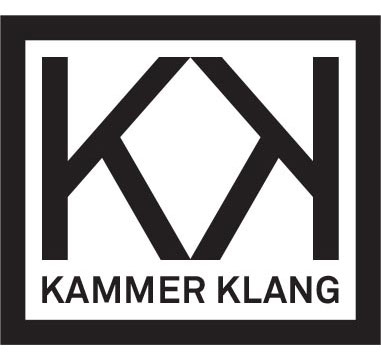Cafe Oto, 18-22 Ashwin Street, London E8 3DL
£7 advance / £6 Oto members / £9 door / £5 students
Buy tickets here
Season tickets available here
Student ticket price only available on the door. Please email us to reserve your tickets, as there will be no ticket sales on the door if a show sells out. Student ID will be needed at entry.

Programme
19.30 Doors
20.30 Programme begins
22.30 Programme ends
Fresh Klang: Morton Feldman, The Straits of Magellan (1961), performed by 4|12 Collective (RAM Experimental Music Ensemble)
Epsie Thompson, flute
Maude Wolstenholme, horn
Lucy Humphris, trumpet
Nicolette Chin, harp
Billy Marrows, guitar
Sam Becker, bass
Jake Brown, piano
Bertie Baigent, conductor
/
Joanna Bailie, Last Song From Charleroi (2017), for 4 electric guitars and tape, 17′
Earle Brown, December 1952 (1952), 15′
John Dowland, Semper Dowland, Semper Dolens (1605), 10′
Zwerm Ensemble
/
Caterina Barbieri
Live electronics
Caterina Barbieri

Caterina Barbieri (b. 1990) is an italian composer and performer of electroacoustic music. Living at the romantic intersection between analog and digital, organic and binary, human and artificial, her music is a sonic utopia about emerging machine intelligence, human desire of pattern detection and rips of love in the invariable texture of the matrix. Her minimalist focus arises from a meditation on primary waveforms, overtone-centered patterns and the polyrhythm of harmonics, mainly rooted in the exploration of the polyphonic and polyrhythmic potential of voltage-controlled sequencers. Recursive sound patterns as a medium of perceptual insight and mental training are one of the main inspiration of her current sonic research. Using synthesis, psychoacoustics and repetition as key concepts, the italian composer stylizes the dancing of wave cycles in severe geometries of time and space on the boundary between minimalism, drone and techno in multichannel listening environments.
Zwerm Ensemble

Zwerm was founded in 2007 and has collaborated with many artists including Fred Frith, Mauro Pawlowski, Larry Polansky, Eric Thielemans, Yannis Kyriakides, François Sarhan, Mark Vanrunxt, Sheila Anaraki, Etienne Guilloteau, Stefan Prins and Serge Verstockt.
Zwerm is Toon Callier, Johannes Westendorp, Bruno Nelissen and Kobe van Cauwenberghe.
Joanna Bailie

Morton Feldman

Morton Feldman (January 12, 1926 – September 3, 1987) was an American composer. A major figure in 20th-century music, Feldman was a pioneer of indeterminate music, a development associated with the experimental New York School of composers also including John Cage, Christian Wolff, and Earle Brown. Feldman’s works are characterized by notational innovations that he developed to create his characteristic sound: rhythms that seem to be free and floating; pitch shadings that seem softly unfocused; a generally quiet and slowly evolving music; recurring asymmetric patterns. His later works, after 1977, also begin to explore extremes of duration.
Earle Brown

Earle Brown (December 26, 1926 – July 2, 2002) was an American composer who established his own formal and notational systems. Brown was the creator of open form, a style of musical construction that has influenced many composers since—notably the downtown New York scene of the 1980s and generations of younger composers.
Among his most famous works are December 1952, an entirely graphic score, and the open form pieces Available Forms I & II, Centering, and Cross Sections and Color Fields.
John Dowland

John Dowland (1563 – buried 20 February 1626) was an English Renaissance composer, lutenist, and singer. He is best known today for his melancholy songs such as “Come, heavy sleep” (the basis of Benjamin Britten’s 1963 composition for guitar solo, Nocturnal after John Dowland), “Come again”, “Flow my tears”, “I saw my Lady weepe” and “In darkness let me dwell”, but his instrumental music has undergone a major revival, and with the 20th century’s early music revival, has been a continuing source of repertoire for lutenists and classical guitarists.
